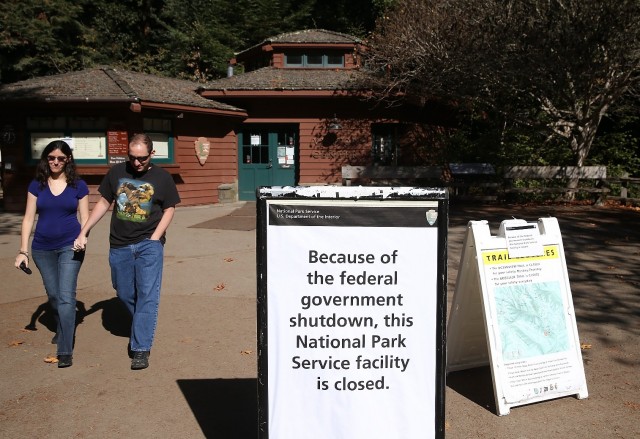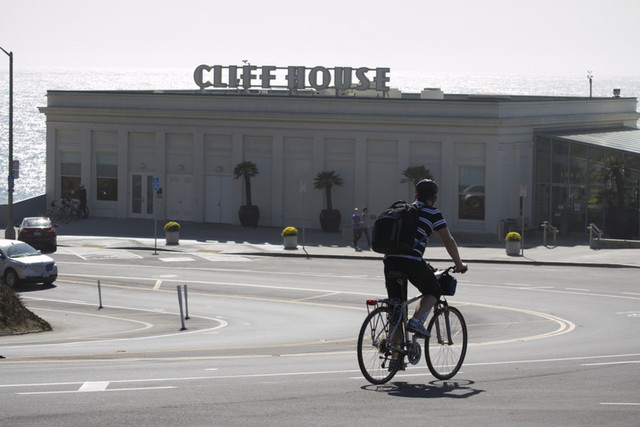
With the government shutdown in its second week, thousands of employees are still furloughed, "nonessential" government services are still closed and confused tourists remain, well, confused.
Hundreds of thousands of federal employees have been furloughed, including many of the 48,000 or so estimated civilian workers in the Bay Area. More may be sent home soon, as the Department of Energy is reportedly deciding whether to order the furlough of 6,000 workers at Lawrence Livermore National Laboratory.
The shutdown's impact keeps rippling outward. Federal paychecks and government assistance checks could soon be disrupted, as they were during the shutdowns of 1995-96.The unintended consequences of the shutdown will reach further, ranging from the relatively trivial — National Zoo's panda cam going dark — to the potentially profound — the closure of a nationwide nutrition program for mothers and children and the suspension of U.S.-funded Antarctic research programs.
Here's what's still shut down locally:
Parks and tourist sites: Tourism is a major industry in San Francisco and the region's national parks draw about 17 million people per year. But since the National Park Service has suspended operations, would-be Bay Area park visitors will have to make other plans. Many businesses that have National Park Service contracts or are otherwise dependent on park visitors are out of luck. A high-profile case in point: San Francisco's Cliff House, whose owners attempted to open this week only to have federal officials force them to "re-close." (The San Francisco Chronicle has the story: "It's last call, for now, at famous Cliff House.")


Courts: Federal courts continue to operate normally using reserve funds. On or around Oct. 15, the courts plan to reassess the situation and may institute furloughs and closures.